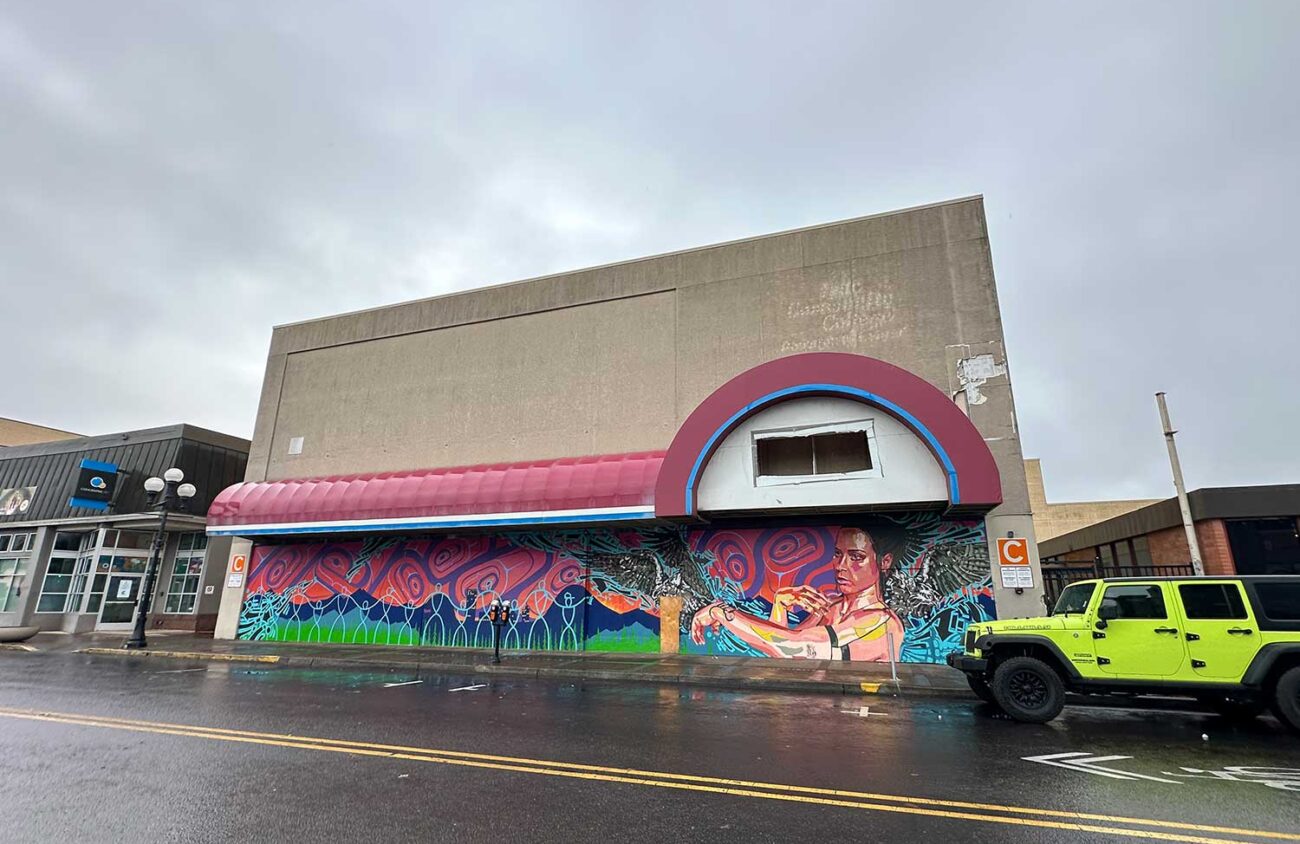After repeated delays, a Eugene developer appears on track by January to tear down the former Lane Community College center on downtown Willamette Street and put up an apartment building with market-rate and rent-controlled units.
But don’t get your hopes up for low rents. The 68 rent-controlled units — all squeaky-tight studios at 422 square feet — will run about $1,128 a month. The 65 market-rate units will be much spendier, including studios at $1,500 a month and two-bedrooms at $2,500, estimates PNW Economics, a consultant hired by the city to evaluate the project.
The project has been years coming. It’s been stalled by rising mortgage interest rates and the developer’s requirement for increased subsidies from the city.
But Mark Miksis, of Eugene-based deChase Miksis, who heads the consortium the city picked for the project, says his group expects to take title to the city-owned building “very soon after the first” of January. He says he has contractors lined up to then remove asbestos before the tear-down begins. Under his deal with the city, he’ll have 20 months to complete construction and put the ground-floor commercial space and five stories of apartments up for rent.
The city and Miksis have pushed out deadlines before. But this time it looks more likely the developer will satisfy the city’s terms for taking ownership.
One sign of Miksis’ confidence: His group recently applied to the city for demolition and phased construction permits — typically a final step before on-the-ground work begins.
“We feel pretty good,” Miksis says. But he adds, “We’re still working on the details of the financing.”
The project is estimated to cost more than $34 million, up from $29 million three years ago. The development group needs to borrow about $23.5 million of the price tag on the commercial mortgage market. The city requires the developer to have the loans nailed down before it hands over the building. Commercial real estate lending “is a weird market right now,” Miksis says. “Not all lenders are participating at levels they were before” the recent nationwide interest rate spikes.
The city has talked up a storm about how the project will bring affordable rentals to the community. Under the deal, the rent-controlled units will be tied to the community’s median household income for 35 years. They’re meant to be affordable to a single person earning somewhat less than the median income, or under $50,000 a year.
Rents for the 65 market-rate units will be depressingly high — as at other new market-rate apartment blocks developers are stacking up in Eugene. But they are a hair less than prices at other new apartment complexes, PNW’s report says.
The site — at 11th Avenue and Willamette Street in the downtown core, across from the busy Lane Transit District bus station — is an oddity in the local apartment development frenzy. It’s an “inferior location,” says PNW Economics’ report. Other apartment developers have gravitated to spots nearer the University of Oregon, or just outside the downtown core, such as the Fifth Street Public Market area.
But Miksis says he’s confident he will find renters. “Our analysis shows that there will be demand,” he says. “There is a need for this type of housing downtown.”
The relatively spendy rents for the rent-controlled studios reflect the relatively modest taxpayer subsidies for the project.
LCC moved into a new downtown complex on 10th Avenue in 2011, leaving the Willamette building empty. The city, with federal money, bought the half-acre site from LCC for $500,000 in 2020. The next year it picked the Miksis team. Since then, development estimates jumped and mortgage interest rates spiked.
Miksis said the main mortgage lender has committed to the project. The development group must also secure about $10 million in equity from investors. The city will provide one-time subsidies valued at $1.84 million. These include giving the site to the developer for free; waiving permit and development fees; and helping to pay for demolition.
Also, the city and county have agreed to waive property taxes for 10 years under the Multiple Unit Property Tax Exemption program. That’ll save the developer about $276,000 in the first year, the consultant says. Without the waiver, a developer likely would not do the project, PNW Economics says.
“Ultimately, the MUPTE plays an important role in helping this project avoid being outright financially infeasible, but … project costs are high enough such that the MUPTE only helps the project achieve modest cash-on-return,” the consultant’s report says.
Developers typically want a cash-on-cash return — one measure of profitability — of 6 percent a year, the report says. But even with the tax waiver, the project’s return starts at -4.7 percent, gradually rising to 4.2 percent in year 10, PNW Economics says.
To comply with the current deal, Miksis must take title by Feb. 1, 2025. That would give him until the end of September 2026 to finish the building.
For more information, visit Eugene-or.gov/3256/1059-Willamette.
